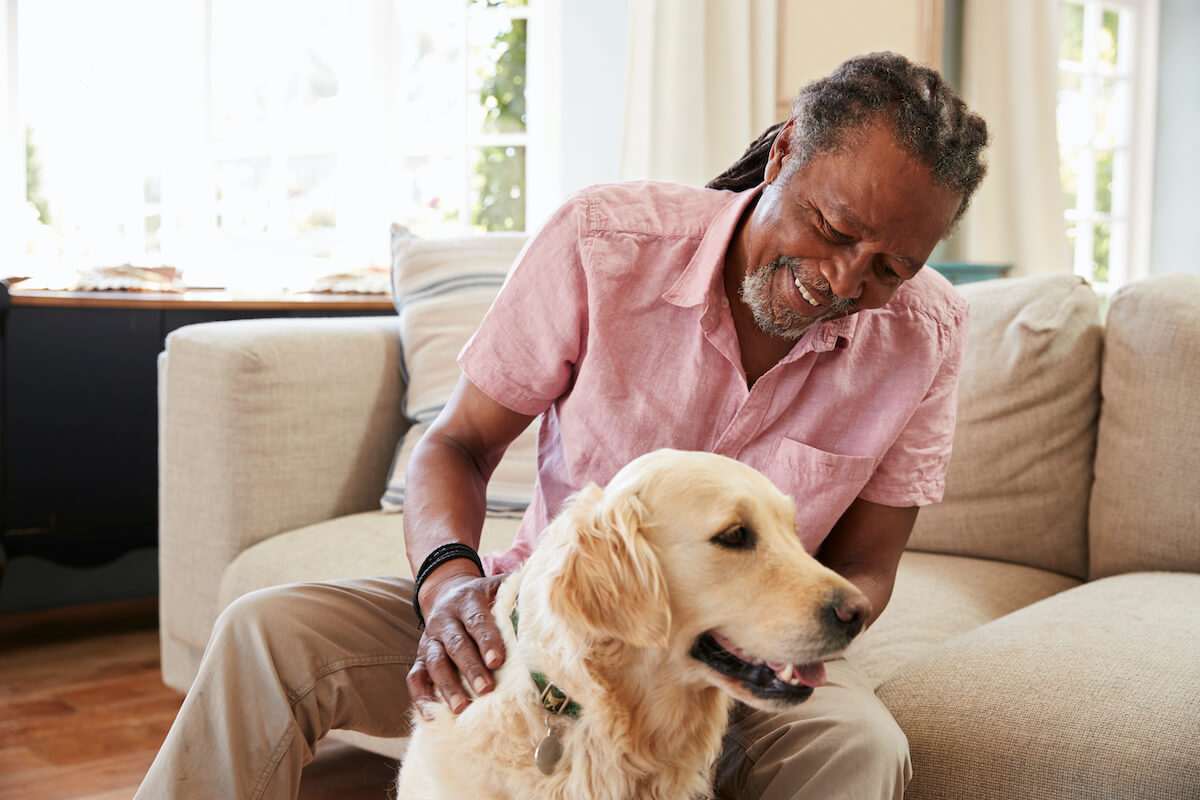
Let’s be honest. Getting older can be lonely. The house gets quieter. The days can feel longer. But what if there was a furry, feathered, or even finned companion that could change all that? For countless seniors, pet ownership isn’t just a hobby; it’s a lifeline to better mental well-being. It’s a powerful, non-prescription remedy for the soul.
- More Than Just a Pet: A Reason to Get Up in the Morning
- Combating the Silent Epidemic: Loneliness and Social Isolation
- The Science of a Purr: Physical Touch and Stress Reduction
- Choosing the Right Companion: It’s Not One-Size-Fits-All
- Practicalities and Pitfalls: A Realistic Look
- When Ownership Isn’t an Option: Other Avenues
- The Final Word: A Paw Print on the Heart
More Than Just a Pet: A Reason to Get Up in the Morning
You know that feeling of having a purpose? That sense of being needed? Pets provide that in spades. A dog needs to be walked. A cat demands its breakfast at 6 a.m. sharp. This isn’t a nuisance; it’s a gift. It creates a non-negotiable routine, a structure that fights off the lethargy and isolation that can sometimes creep in later in life.
That sense of purpose is a huge mental health benefit of pet ownership for seniors. It shifts the focus from inward to outward. You’re not just thinking about your own aches or worries; you’re responsible for another living being. And that responsibility, honestly, feels good.
Combating the Silent Epidemic: Loneliness and Social Isolation
Loneliness is, well, a silent killer. It’s linked to higher risks of everything from depression to heart disease. But a pet is a constant, living presence. They offer unconditional love without judgment. There’s no arguing, no complicated history—just a warm body to curl up with on the couch.
And here’s a fun twist: pets are incredible social lubricants. Walk a friendly dog, and you’ll see. Strangers smile. They stop to chat. They ask about your dog. That simple interaction—a comment about the breed, a shared laugh as your dog chases a leaf—can blossom into a conversation, and maybe even a friendship. Pets naturally facilitate social connection, pulling seniors out of their shells and back into the world.
The Science of a Purr: Physical Touch and Stress Reduction
This isn’t just fluffy talk. There’s real science here. Studies have shown that interacting with a pet can:
- Lower cortisol levels (that’s your primary stress hormone).
- Decrease blood pressure.
- Increase oxytocin (the “feel-good” bonding hormone).
Think about it. The rhythmic act of stroking a cat’s soft fur. The feeling of a dog’s head resting trustingly on your lap. These simple acts of touch are incredibly calming. They ground us in the present moment, pulling us away from anxious thoughts about the future or regrets about the past. It’s a form of mindfulness, with four legs and a wet nose.
Choosing the Right Companion: It’s Not One-Size-Fits-All
Okay, so you’re convinced. But before you run out and get the first puppy you see, pause. The key to unlocking these mental health benefits for older adults is a good match. The wrong pet can become a source of stress, not relief.
Consider Your Lifestyle
Be brutally honest with yourself.
- Active Seniors: A dog that needs daily walks might be a perfect motivator to stay moving.
- Homebodies: A cat, a bird, or even a low-maintenance fish tank could provide calm companionship without the physical demand.
- Frequent Travelers: Maybe a pet isn’t the right choice, or perhaps a more independent animal like a cat (with a good pet sitter!) could work.
Thinking Beyond Dogs and Cats
Don’t limit yourself! Birds can be wonderfully interactive and chatty. Watching fish swim has been proven to reduce stress and lower heart rate. Even a small hamster or guinea pig can provide a sense of purpose and a living being to care for.
Practicalities and Pitfalls: A Realistic Look
We have to talk about the other side of the coin. Pet ownership is a commitment. It costs money for food, vet care, and supplies. There can be concerns about falls from tripping over a pet or clutter from pet accessories.
That said, there are brilliant workarounds. Many local charities and non-profits offer programs to help seniors with pet food and veterinary costs. Choosing an older, calmer rescue animal from a shelter often means bypassing the chaotic puppy or kitten phase. And honestly, a little extra care in arranging your home is a small price to pay for the immense mental ROI.
When Ownership Isn’t an Option: Other Avenues
What if you can’t have a full-time pet? Don’t worry, you’re not locked out of the benefits.
- Foster for a Local Shelter: Provide a temporary home for an animal in need. All the love, without the long-term financial commitment.
- Pet-Sitting or Dog-Walking: Offer to help neighbors or use an app like Rover. You get your “pet fix” and help someone else out.
- Volunteer: Animal shelters are almost always desperate for volunteers to come socialize with cats, walk dogs, or just provide human interaction. The animals get love, and you get a massive dose of those feel-good hormones.
The Final Word: A Paw Print on the Heart
At the end of the day, the mental health benefits of pet ownership for seniors boil down to connection. In a stage of life that can sometimes feel defined by loss—loss of career, loss of friends, loss of routine—a pet represents a gain. They offer a unique, wordless bond that fights loneliness, creates purpose, and literally changes our body chemistry for the better.
It’s not about getting just a pet. It’s about welcoming a companion, a therapist, a personal trainer, and a best friend, all rolled into one loyal, loving creature. That’s a prescription no pharmacy can fill.

